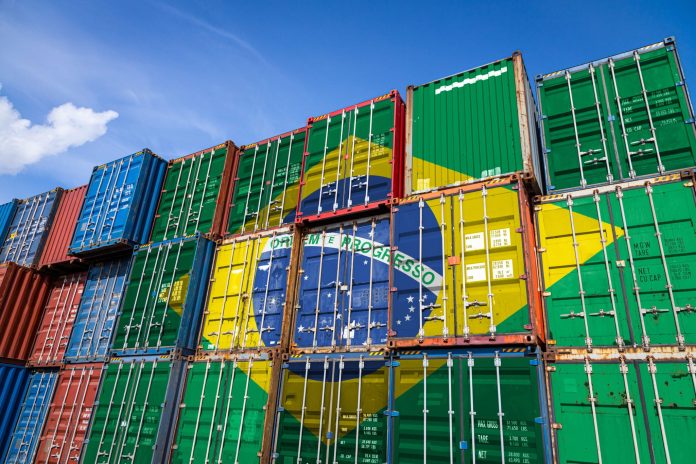Through the end of last month and the start of last week, an assortment of tech providers, all with something to sell, descended on São Paulo to proclaim the imminent arrival of 5G in Brazil, and paint a picture of glorious digital change stretching across every industrial sector. They filed into the Digitalks Expo in the city to collectively wind the crank-arm on the 5G hype machine, just as it has been wound wherever else in the world 5G has already gone.
Ricardo Hobbs, vice president of strategy and new businesses at Telefônica Brasil (Vivo), told the event: “We are in the middle of the fourth industrial revolution… There is an unprecedented accumulation of disruptive technologies, accelerated because of the pandemic… Anything that is not [already] appficado (‘appified’) will be in the short term, and these changes will be accelerated with 5G.”
Telefônica’s rollout of 5G in Brazil starts in October, with all national carriers mandated to start 5G work within six-to-12 months. Hobbs said Brazil’s “online population” is the fifth largest in the world; the Covid-19 pandemic has seen some form of medical care delivered wirelessly to 20 percent of the population, and some form of home working enabled wirelessly by 40 percent of the workforce.
He stated: “5G will impact high-precision industry, telemedicine and telesurgery, autonomous cars and education.” He cited augmented and virtual reality (AR and VR) as a key 5G application for consumers and enterprises, and noted the parallel development of technologies such as blockchain and artificial intelligence, and the role of technology more generally in the delivery of healthcare and medicine, and in the promise of autonomous vehicles.
Vivo is increasing its investment in the country’s tech future, he said. “As a revenue leader, Vivo invests more than R$8 billion a year in technology and innovation projects such as artificial intelligence and the Aura service system in diversified formats, but also in business diversification and services that help transform lives, such as Portal Terra, Vivo Sustentável and Fundação Telefônica, among others.”
Besides Telefônica, the Digitalks Expo event saw keynote addresses and panel sessions by Brazilian financial services company Alelo do Brasil, Brazilian beverage company Ambev, and German industrial giant Siemens (of course) in a couple of appearances at least. Accenture, SAS, and the Brazilian division of Starlink, the satellite internet constellation operated by Elon Musk’s SpaceX also gave talks.
“Brazil is not really for amateurs”, concluded a panel with Siemens and Accenture, talking about the prospects for Industry 4.0 in the country. Longer-term strategic planning is essential for industrial enterprises, turning on slower infrastructure investment cycles, to deploy standardized technology solutions, they said. “Integrated platforms and macro solutions are also important in the process,” said Rafael Dias, head of Industrial Automation at Siemens.
Away from heavy industry, the event put significant focus on the retail sector, including a review of the impact of Brazil’s PIX platform for instant payments, launched in late 2019 by the country’s Central Bank. PIX enables punters to pay for goods with smartphones; the system saw R$29 billion of transactions and 95 million downloads in its first month. Caio Lira, director at Ambev, said: “We are aware of all the changes that PIX has been bringing.”
Fernando Moraes, commercial superintendent at Alelo do Brasil, reflected: “Any and every company that does not pay attention to changes in technology is destined to lose market share.” Siemens said six percent of companies in Brazil consider themselves as ‘digital leaders’, 37 percent reckon they have a “mature digitization plan”, and 26 percent fear their companies will be overtaken by the competition.
Siemens cited the role of edge computing, cognitive engineering, and industrial 5G, alongside the aforementioned technologies and tech trends that will find their way into the Brazilian market with 5G. Meanwhile, the word from Starlink is the company has 740 satellites in orbit already, and a mission to “take the internet where it doesn’t exist”. Big talk, then, from big firms with big-ticket sales agendas.

